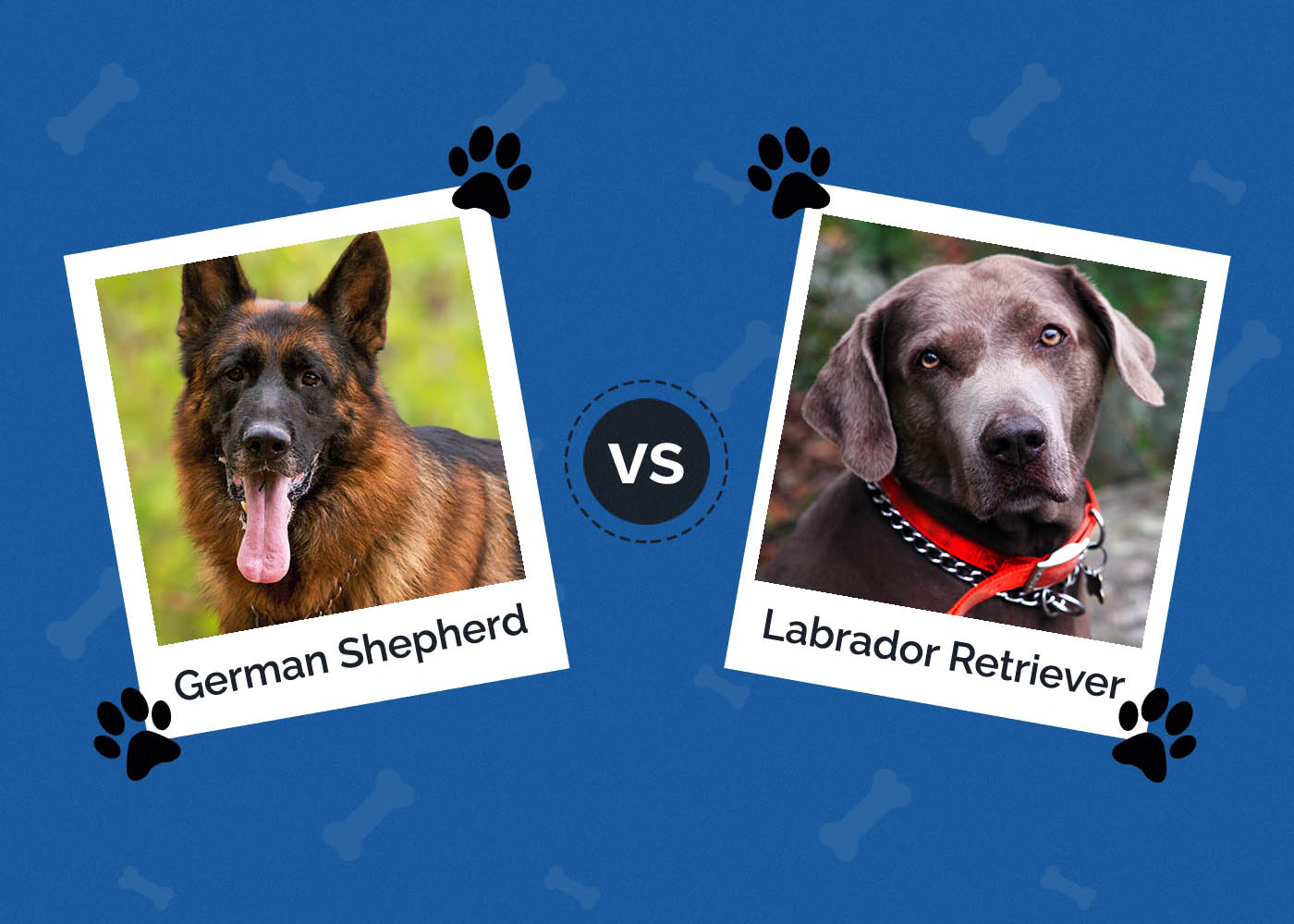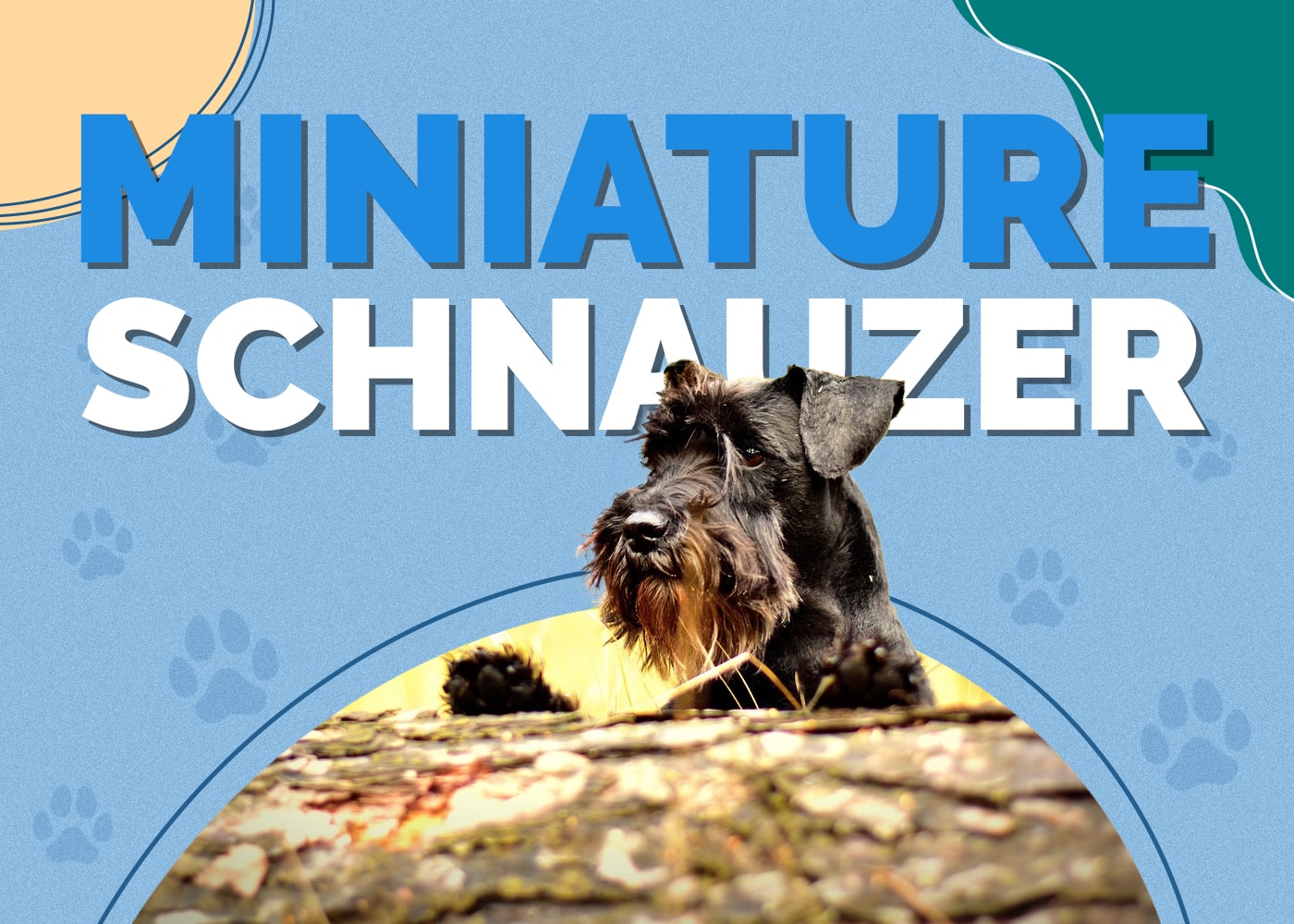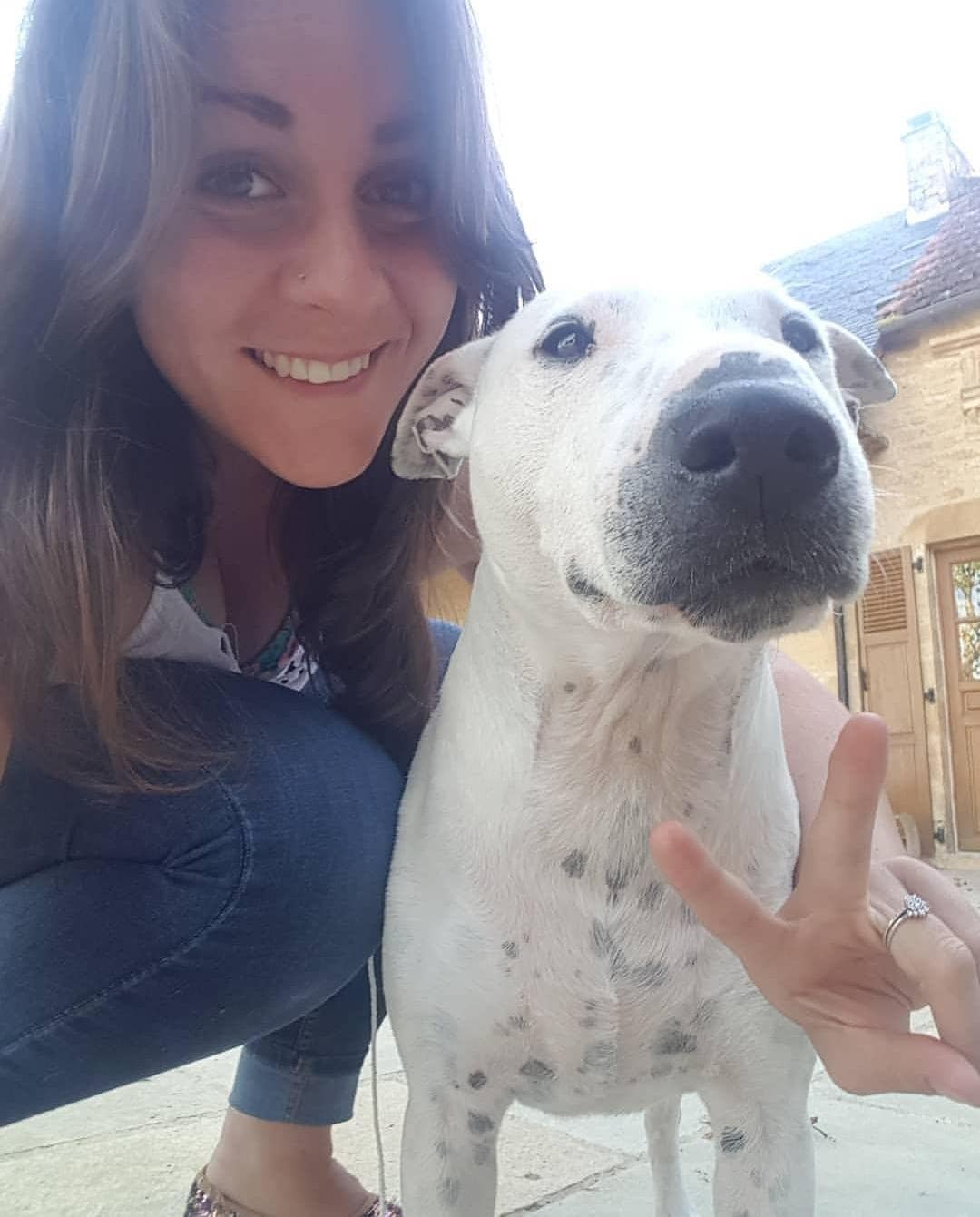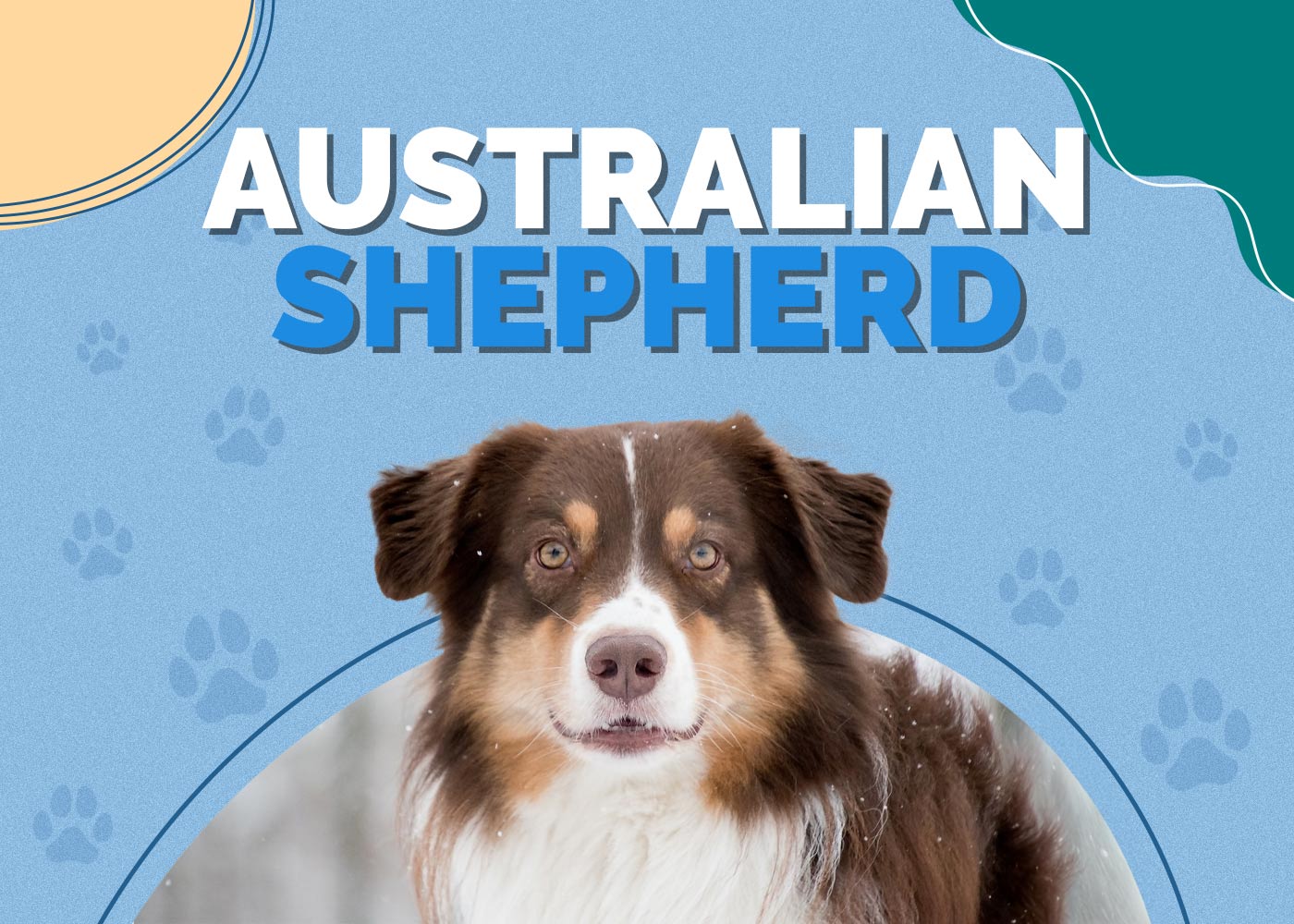German Pointeraner (German Shorthaired Pointer & Weimaraner Mix): Info, Pictures, Characteristics & Facts

Updated on
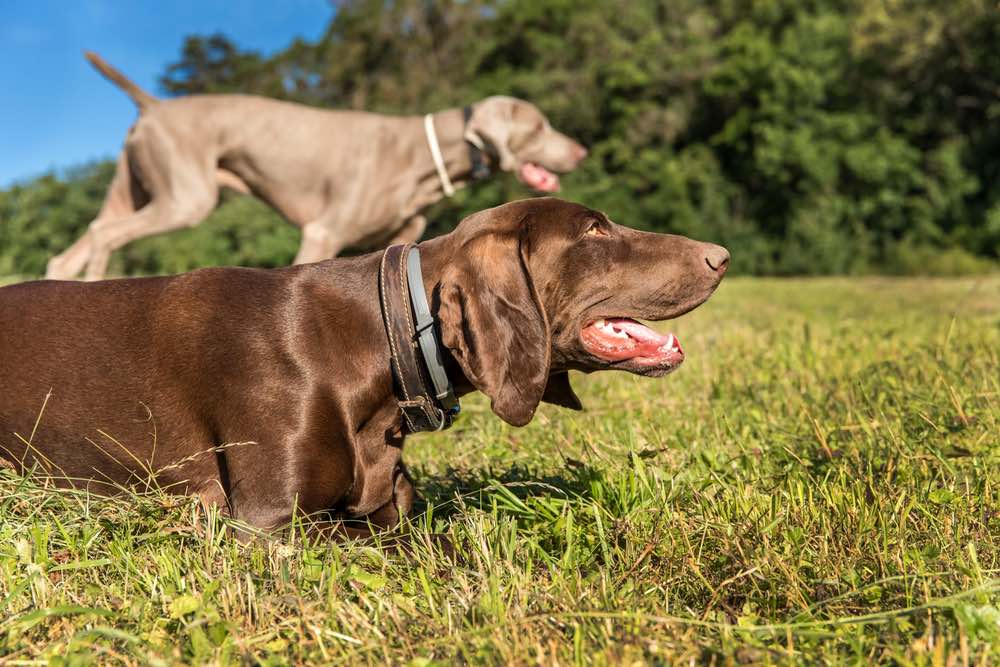
Height:
17–23 inches
Weight:
45–60 pounds
Lifespan:
12–13 years
Colors:
Brown, white, grey, silver, red
Suitable for:
Families of all sizes, homeowners with large yards, owners who hunt, active owners, attentive owners
Temperament:
Energetic, Intelligent, Loyal, Loving, Confident
The German Pointeraner is a cross between a German Shorthaired Pointer and a Weimaraner. The result is a confident, loving, loyal canine who will stick by your side through just about anything. German Pointeraners make great family dogs, as they get along well with children and people of all ages.
They can take a little while to warm up to strangers, but typically, they are outgoing and friendly toward anyone who isn’t considered a threat. They’re incredibly active and need extensive exercise and mental stimulation to avoid bad behavior.
Routine training will go a long way in getting rid of bad habits. We’ll discuss everything you need to know to determine if the German P9interaner will fit in well with your lifestyle and your family.
German Pointeraner Puppies
The most important factor you must consider before committing to this breed is their daily exercise requirement. German Pointeraners are energetic and will need about 1 ½ hours of dedicated exercise every single day. Even as puppies, they will test your endurance in walking, running, and playtime.
You should also be prepared to keep your dog company as a puppy and throughout all stages of life. They thrive on human interaction and companionship, so they mustn’t be left alone for long periods. If you and your family will be out for hours every day at work or school, you may want to reconsider getting a German Pointeraner; they can turn to bad behavior if they feel neglected.
Lastly, they are prone to hip dysplasia, so your German Pointeraner shouldn’t be exercised on hard surfaces like cement when they’re young. Keeping your puppy on dirt or grass during walks while their joints are growing will help avoid future issues like dysplasia.
3 Little-Known Facts About the German Pointeraner
1. German Pointeraners Make Excellent Hunting Dogs.
Both of the German Pointeraner’s parent breeds were bred to hunt, so you can be confident yours will excel in hunting and tracking. The German Shorthaired Pointer has been a prized pointing and hunting dog for centuries, and the Weimaraner has been used for tracking and hunting since the 1800s.
2. Their Temperament Can Vary.
Because the German Pointeraner is a mix of two breeds, their personality and temperament can vary based on which parent breed they resemble most. Yours may be cool and confident like the Weimaraner or gentler and more reserved, especially around strangers, like the German Shorthaired Pointer.
Some owners may dislike not knowing their dog’s personality, while others love the idea of a bit of a surprise and potential challenge.
3. Their Parent Breeds Are Pretty Closely Related.
German Shorthaired Pointers and Weimaraners hail from Germany. Both are hunting dogs, and both are believed to have been developed by mixing similar breeds over several decades. It’s believed that both parent breeds have histories of mingling with Great Danes, Spaniels, and Bloodhounds.
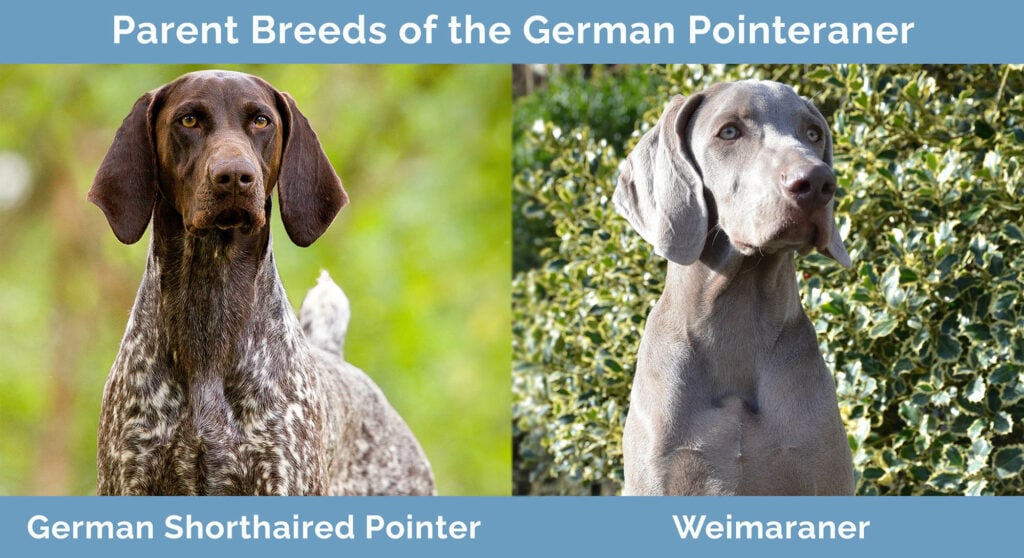
Temperament & Intelligence of the German Pointeraner 🧠
The German Pointeraner is an intelligent, inquisitive, and alert dog who will happily protect you, your family, and your home from perceived threats. They are collected and confident, which makes them appear ready to stand up to any danger.
They are friendly and loving dogs who adore their owners and seek to please them constantly. They form very tight bonds with their human counterparts, which will be evident in their training and interactions with you and your family.
They excel at hunting, love exercising outdoors, and always want to be part of your family’s activities.
Are These Dogs Good for Families? 🏡
In case it wasn’t obvious, the German Pointeraner makes an excellent family dog! These pups get along very well with children and people of all ages. They are full of energy and may accidentally knock over small kids, but you never have to worry about German Pointeraners showing aggression or being unfriendly toward children of any age.
They love being around their families and being able to take part in family outings and activities. They can suffer from separation anxiety, so they’re best suited for homes where there will usually be someone home they can interact with and keep company.
Does This Breed Get Along with Other Pets? 🐶 😽
German Pointeraners usually get along fine with other dogs. They often have no issues with other dogs they live with or with unfamiliar dogs they meet at dog parks or while outside exercising. Early socialization is vital to get them used to meeting and interacting with other dogs, but you shouldn’t have any problems.
Because both parent breeds were initially bred for hunting and tracking, the same friendliness they exhibit toward other dogs won’t be extended to cats or other small pets you may have. Your German Pointeraner’s hunting instincts will likely kick in at the sight of a small animal.
They aren’t recommended for homes with small pets, and you’ll also need to make sure to keep them leashed and on a harness while exercising in case a squirrel, rabbit, or another neighborhood animal tempts them.
Things to Know When Owning a German Pointeraner:
Food & Diet Requirements 🦴
German Pointeraners are medium-sized dogs, but they have healthy appetites! To maintain their energy levels, you should feed them around 3 cups of dry dog food each day, split into two or three meals. To provide the best nutrition for your energetic German Pointeraner, you should choose a commercial dog food that is high in protein and is formulated for medium-sized dogs with a high energy level.
This will provide them with the energy and nutrients they need to live a happy and healthy life. Lastly, they are unfortunately prone to bloat, which is a condition in which the stomach fills with gas and collapses on itself.
Bloat can be life-threatening, and while there’s no way to avoid it altogether, you should always make sure your pup doesn’t exercise for at least an hour after eating or drinking large volumes of water. This will help reduce the likelihood that they’ll be afflicted with bloat.
Exercise 🐕
As hunting dogs bred to carry out physically demanding jobs, German Pointeraners are expected to have a high energy level. You should be ready to commit about 90 minutes daily to dedicated exercise for your pup.
Of course, you don’t have to hunt with your dog, but exercises you can engage in together are best. Walks, hikes, outdoor games, and swimming are great options for your dog. They will love to play in the yard, but don’t let outside play replace dedicated exercise time. These dogs can turn to destructive behavior if they don’t get their energy out in a positive way!
Additionally, German Pointeraners are very intelligent and will do well with mental stimulation. Agility, hunting, and advanced training are great for keeping their minds sharp, and you can also provide logic games or puzzle toys to keep them engaged.
Training 🦮
German Pointeraners are intelligent, loyal, and eager to please their owners. With dedication and repetition, you can teach your pup various tricks and commands. Because they are easy to train, they are perfect for new dog owners who don’t have experience with obedience training.
A regimented training program is perfect for German Shorthaired Pointer and Weimaraner mixes, but it’s best to focus on positive reinforcement. Treats, affection, and verbal encouragement for good behavior will have your German Pointeraner trained correctly in no time.
Grooming ✂️
German Pointeraners have fairly dense fur and shed regularly, and you can brush them about once a week with a slicker brush to maintain a healthy coat and cut down on shedding. They naturally resist dirt and don’t have that instantly recognizable dog smell, so they can be bathed on an as-needed basis or about once every other month.
Don’t bathe more often, as frequent bathing can deplete their natural skin oils, which keep their skin and coat healthy and shiny. You’ll want to make sure to keep your dog’s nails trimmed regularly since active breeds like the German Pointeraner are more prone to nail damage during exercise.
You should also clean their inner ears about once a week to cut down on debris and dirt build-up and prevent infections. Lastly, brush your pup’s teeth about once a week to promote good tooth and gum health.
Health Conditions ❤️
Thankfully, German Pointeraners are generally very healthy dogs who aren’t prone to many health issues. Of course, you should still schedule regular trips to the vet and keep a close eye out for signs related to the health issues below that can be more common in this breed.
- Progressive retinal atrophy
- Entropion
- Hip dysplasia
- Bloat
Male vs Female
Male and female German Pointeraners differ in a few areas. Males can have a higher prey drive, which means they may take more interest in cats or other small animals you may have. Females can have a lower average energy level and are a bit smaller in height and weight.
For the most part, your dog’s temperament and behavior will depend more on which parent they more closely resemble.
Summing Up
German Pointeraners are remarkable, loveable dogs who quickly become integral to their families. They love human interaction and will always want to be a part of family activities. However, they don’t do well with long periods of separation.
The German Shorthaired Pointer and Weimaraner mixed dogs are highly energetic, which makes them perfect for active families, but they’ll also be happy relaxing and cuddling with you after a long day of exercise and play.
They are a pleasure and a breeze to train, so they are great even for first-time dog owners. As long as you and your family dedicate time to proper exercise and grooming, a German Pointeraner will make an excellent four-legged addition to your family.
Featured Image Credit: Marsan, Shutterstock




